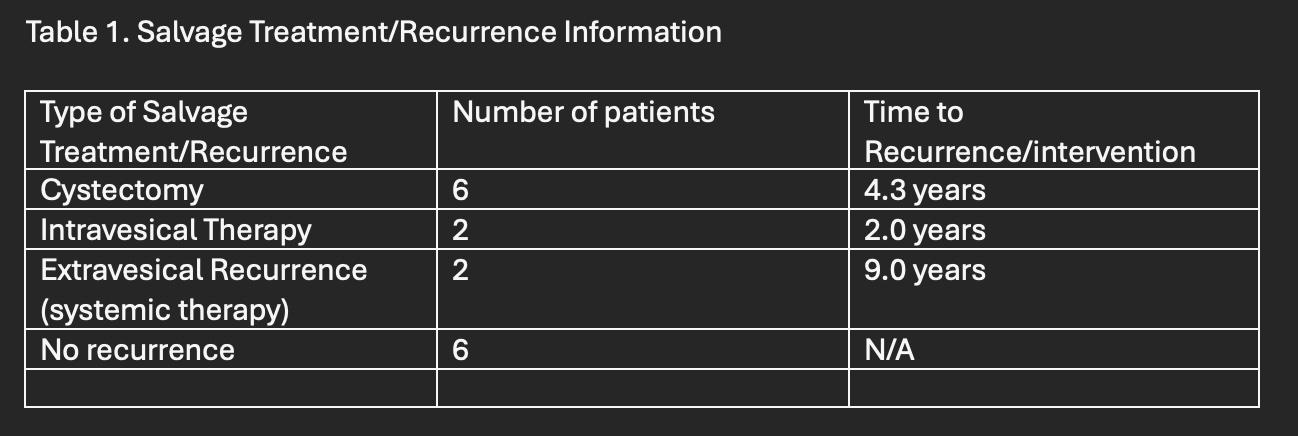Back to 2025 Abstracts
Conservative Management Following Receipt of Neoadjuvant Chemotherapy in Muscle Invasive Bladder Cancer: Single Institution Retrospective Analysis
Syed N. Rahman, MD, John Colberg, MD.
Yale School of Medicine, New Haven, CT, USA.
BACKGROUND:: The standard of care for muscle invasive bladder cancer (MIBC) is typically treated with neoadjuvant chemotherapy (NAC) followed by radical cystectomy. However, there exhibits a subset of patients with MIBC who exhibited a complete clinical response (CR) to NAC.
METHODS: We retrospectively reviewed the records of all patients with MIBC of a single surgeon in our institution who elected for surveillance following clinical CR to TURBT and NAC receipt from 2010 to 2024. CR was defined as absent tumor on TURBT specimen and negative cross sectional imaging. Chemotherapy regimen, time to recurrence, and overall survival were recorded.
RESULTS: A total of 16 patients were identified as having a CR. Median follow-up was 7.3 years and median age at time of diagnosis was 64 years (61.2-69.5). 94% of NAC regimens were platinum based. 5 year overall and recurrence free survival from MIBC diagnosis were 94% and 76%. 4 (25%) patients were alive at 10 years. Of note 2 patients developed extravesical metastatic disease (15.7%) with a time to metastatic recurrence of 9.0 years (8-10). A total of 8 patients (50%) developed intravesical recurrence with 6 requiring cystectomy (37.5%) and 2 requiring intravesical therapy (12.5%). Mean time to cystectomy was 4.3 years (2-8). 6 (37.5%) patients did not have a recurrence.
CONCLUSIONS: Conservative management in those with a CR following NAC in MIBC after TURBT represents a highly heterogeneous group. However, a population of patients with high rates of overall survival with bladder preservation does exist. Further research is warranted to identify and characterize the biologic and genomic differences that identify those who may be appropriate active surveillance candidates.

Back to 2025 Abstracts
